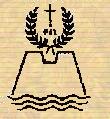|
ON THE MANNER IN WHICH THE PERSECUTORS DIED
DIOCLETIAN
AND GALERIUS
Having
persecuted the Christians, Diocletian set out for Rome to celebrate
his 20th year of reign. Upon arriving, he could not stand the
freedom in Rome; he impatiently left the city and went to
Ravenna. Having journeyed at the beginning of winter, he felt
sick and became bed-ridden. He became so ill that talks spread that
he was dead. He forced himself to appear in public but his one
year of illness made him unrecognizable. He never again
attained perfect health for he became disoriented in his judgments--
at times, insane; at other times, of sound mind.
After
that, Galerius Caesar, his son-in-law, arrived and forced him to
resign under threat of civil war. At first, Diocletian
refused, realizing that, being long in power, he had made many
enemies. To resign was sure death. So Diocletian
proposed the appointment of two Caesars. Though Constantine
was the best choice, Diocletian chose two unknown incompetents who
further oppressed the people.
Galerius,
however, ruled supreme. He arranged all things so that what he
did to Diocletian would not happen to him. But, having gone
against God, all his plans were thwarted.
While
in power, Galerius treated his subjects as slaves, denying all their
liberties. Those whom he fancied were first degraded before
being tortured. He tortured also judges, the rich and honored
men of the land for the slightest reason. Crucifixion was the
capital punishment. Even matrons were not spared.
For
his sports, he kept wild bears and threw men to the savage animals;
he giggled and laughed when the man's limbs were torn to
pieces. His meals were accompanied by the shedding of human
blood.
Galerius
began a new mode of execution. . .burning people alive, which he
used against the Christians. The burning was done
slowly. Fixed on a stake, a moderate flame burned the soles of
their feet; then another part of the body until all the parts were
aflame. To prolong the agony, however, their faces and mouths
were continually moistened to keep them alive. Death came only
many hours later. Thus, the first Christians were
martyred.
The
torture Galerius used on the Christians he applied to all
indiscriminately. Punishments like imprisonment, banishment or
hard labor he found too mild. His own household was chastised
with lances. To be beheaded was an indulgence shown to a very
few.
His
rule was made worse in that he appointed rude, illiterate, cruel
soldiers to be judges and administrators who merely ravaged the
land.
Then
Galerius imposed the tax. Land, vines, animals, fruit trees
were meticulously taxed. Even the dead animals and men were
taxed. To get a correct inventory, he used immense cruelty;
torture was used on children so they would reveal the possessions of
their parents, slaves to expose their masters, wives to betray
their husbands. The aged and the sick were tortured,
too. Those who could not pay, the mendicants, were put on
board a boat and sunk in the sea.
Then
God struck Galerius. An incurable and malignant ulcer
afflicted his private parts. When physicians tried to
eradicate it, it spread all the more and his veins burst.
Every time physicians tried to cure the wound, it got worse.
Galerius grew emaciated, pallid and feeble. Gangrene set
in. Famous physicians were called in but the distemper even
got worse. His bowels came out and his buttocks became
putrefied. The distemper attacked the intestines and worms
came out of his body. The stench filled the palace and the
city. The punishment had taken a year long and Galerius was
forced to acknowledge the supremacy of the God that he
persecuted. He promised to rebuild the church and make
atonement for his misdeeds. He published an edict restoring
the practice of the Christian religion and begged the Christians to
pray for him. Galerius, however, did not obtain Divine
forgiveness. He died shortly after.
Eusebius:
Ecclesiastical History
(01-21-05) | 